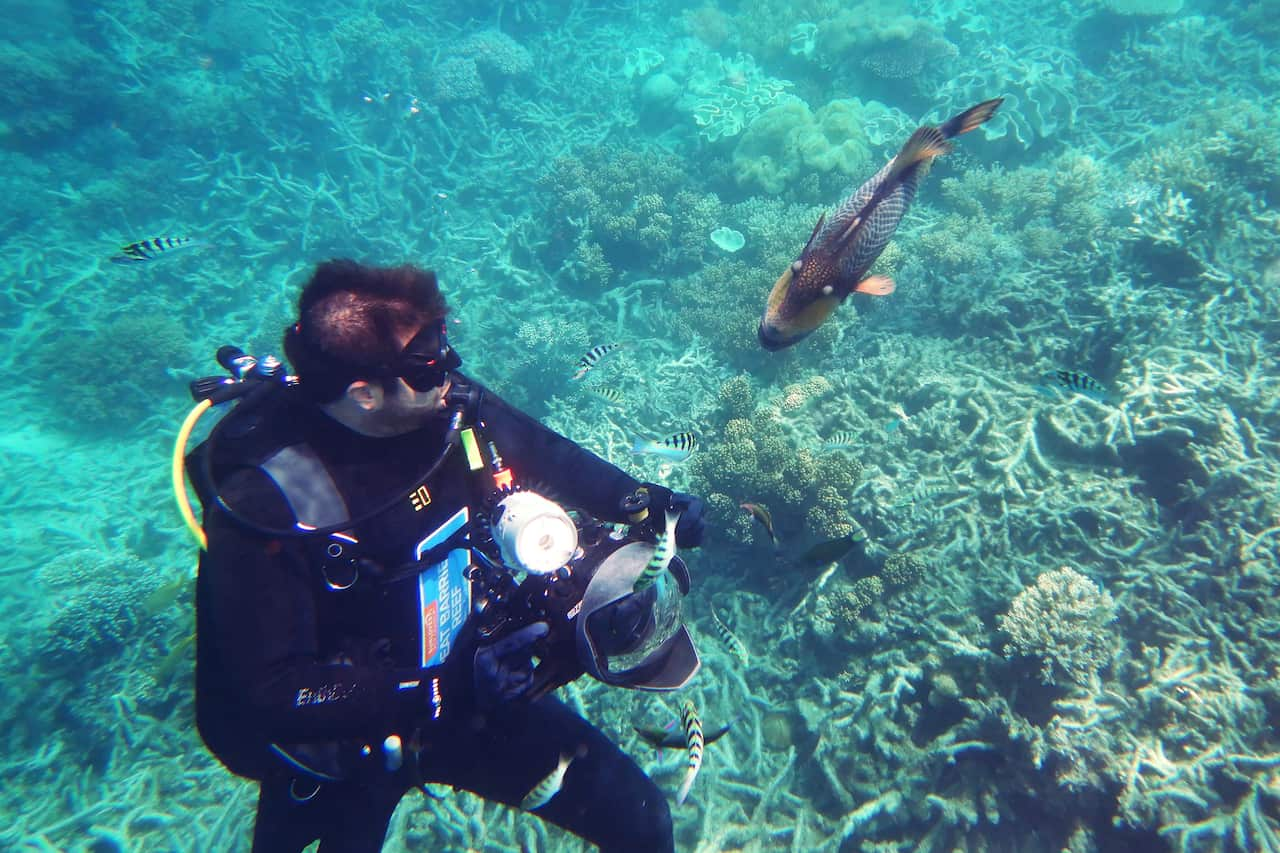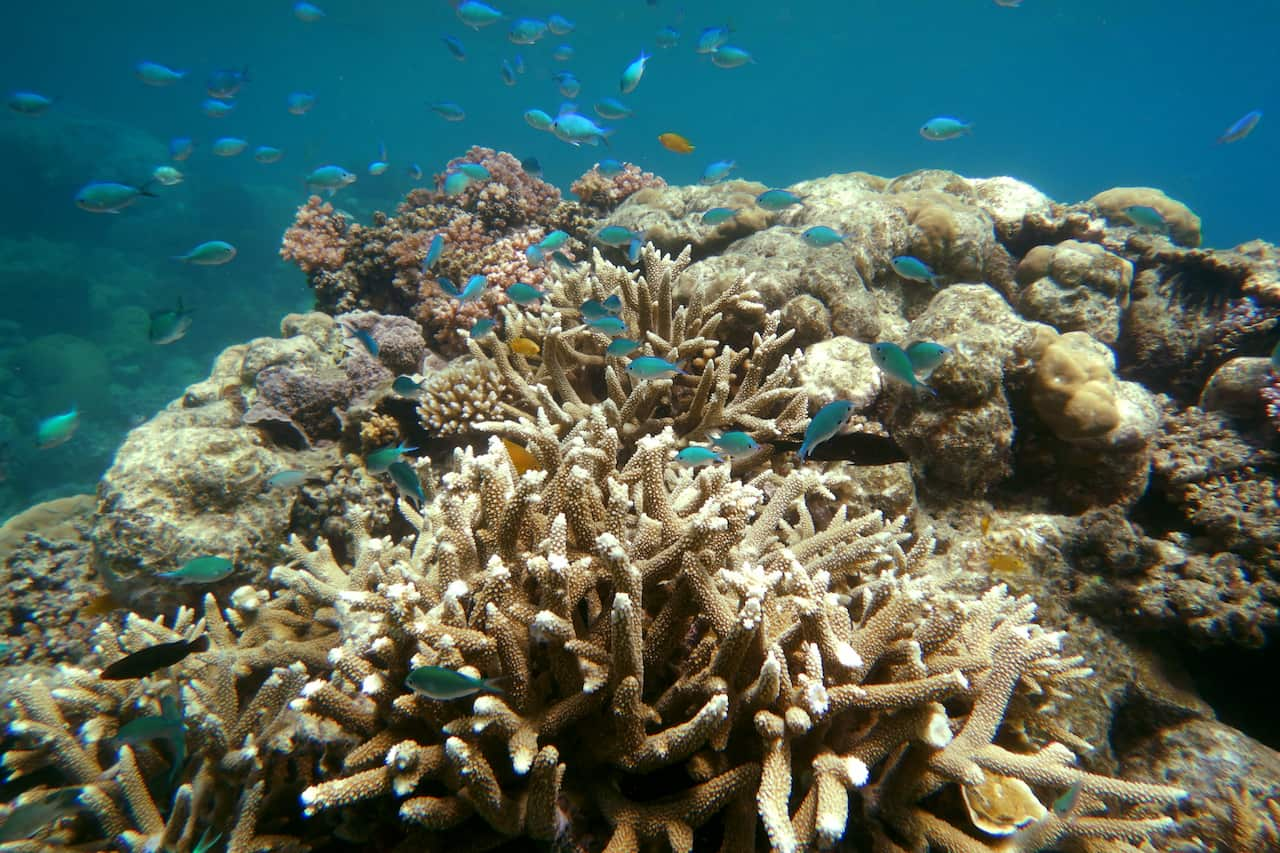Share this @internewscast.com
The survey does not include the latest bleaching event from early 2025, which impacted the Great Barrier Reef and ecosystems along the Western Australian coast.
The growing prevalence of bleaching events
Report co-author Daniela Ceccarelli was concerned about the growing prevalence of bleaching events.
Ceccarelli likened the fast-growing corals to grasses and bushes that shoot up first after a bushfire.
“And if you were to fly over, you’d go ‘it’s nice and green, it’s great’,” Ceccarelli said.
“But the trees are not there yet.”
Heat stress threatening coral recovery
“We don’t know that, but it’s worrying we aren’t getting a lot of time between heatwaves anymore.”

Marine experts fear corals may not adapt to and recover from the impacts of climate change. Credit: AAP
Particularly sensitive to heat stress, corals expel the algae living in their tissues when water is too warm, causing the coral to turn completely white.
While cyclones and outbreaks of crown-of-thorns starfish also harm reefs, AIMS indicated that the primary factor driving the 2024 decline in coral coverage was ocean warming due to climate change.

Marine experts say coral can recover from bleaching but it can be fatal if severe enough Credit: AAP
Fears over further decline in reef health
In the central region, hard corals shrunk nearly 14 per cent.









